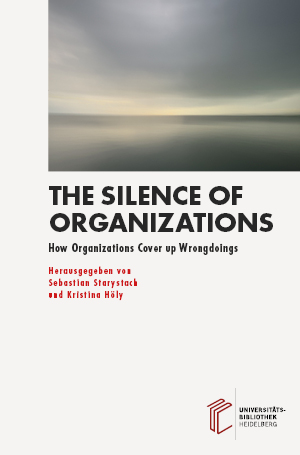Zitationsvorschlag
Lizenz (Kapitel)

Dieses Werk steht unter der Lizenz Creative Commons Namensnennung - Nicht-kommerziell - Weitergabe unter gleichen Bedingungen 4.0 International.
Identifier (Buch)
Veröffentlicht
The Silence of Organizations - The Transplant-Allocation Scandal
Abstract: In the years around 2012, patients waitlisted for a liver transplantation were willfully advanced and received a donor liver earlier than expected. The urgency for a liver transplantation is based on the MELD (Model of Enstage Liver Disease)-Score, which includes three clinical/biochemical variables. These variables were manipulated from some, however, not all transplant centers in Germany. Therefore we are talking about a liver-allocation scandal and not about a transplant scandal (which would imply a completely corrupt transplant system). Research Results concerning the liver allocation scandal: The deviation of liver allocation policy was based on several reasons. None of these reasons are solely responsible for the deviation, since there is a multilayer interaction. One reason was the competition between various transplant centers. A second reason was the hierarchical structures in University Hospitals, mainly in surgical units. Further reasons were the need and the responsibility of a donor liver for the waitlisted patients in a certain transplant center. Financial benefits for the caregivers were not a major reason for the allocation deviation. Consequences for the allocation scandal: First of all, the “Bundesärztekammer” called for audits at all German transplantation centers. These audits comprised not only the liver transplant programs, but also kidney, kidney-pancreas, heart and lung transplant programs. Due to these audits several deviations in other programs, e. g. heart and lung, were discovered. What should we learn from the liver-allocationscandal?
Hierarchical structures in clinics should be questioned and a board of health workers (physicians, nursed, coordinators etc.) should be involved in the wait listing process. The allocation rules need revision and a public discussion, which includes also non-medical professions. The number of transplant centers may be reduced to decrease an unhealthy competition and to concentrate medical specialists in such centers. Finally the transplant medicine and its caregivers should not be stigmatized as “doing criminal or semi-criminal” deeds, just because they are serving patients with life-threating diseases. This has a huge impact on further generation of nurses and doctors who are potentially seeking a career in the transplant medicine.
Keywords: Transplant Allocation Scandal, organ shortage, scientific control, multi-center studies, investigator-initiated studies



